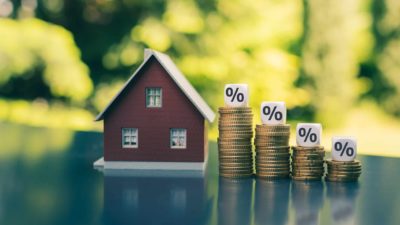Owning your own home has been a traditional rite of passage for generations of Australians, but is it really all that it's cracked up to be?
The Stocks vs. Property debate
The classic Aussie barbecue topic of home ownership and investing will ensure that everyone hears plenty of pearls of wisdom from their neighbours, friends or family over the Australian summer. And the debate often boils down to a simple question of asset class and which is better.
Both equities and property are notoriously cyclical, and this is abundantly clear in Australia at the moment as we see a residential housing market correction and increased volatility in equity markets over the last 6-12 months.
While both asset classes have returned historically strong numbers for investors, and not dissimilar average annualised returns of 7-10%, there are pros and cons to each asset class.
The biggest advantage of real estate is that of leverage. Leverage allows investors to borrow a fraction of the value of the asset that they own, allowing a single investor with $50,000 to control an asset worth $50,000. Of course, it is possible to also leverage up with stocks or even exchange-traded funds (ETFs), but this can be significantly more risky given the volatile, "mark-to-market" nature of the stock market.
Leverage aside, real estate can also provide compelling tax advantages to particular groups of investors including the controversial topic of negative gearing and the ability to collect profits in the form of capital gains.
For equities, there is the obvious pull for many investors of making a quick buck by jumping aboard the next Afterpay Touch Group Ltd (ASX: APT) or Appen Ltd (ASX: APX). Diversified equity portfolios have been a staple of the Aussie investment portfolio for decades and provide the option to provide income (i.e. dividend stocks) or significant capital gains (growth stocks) which can also have a bearing on tax and total investment returns.
So what are people choosing?
There's little doubt that the Australian dream of home ownership is starting to decline, partially due to demographic and values changes, and also the unaffordability of the property market for young Australians.
While the tangibility and "easy-to-understand" nature of property remain attractive for many in Australia, there is an argument that the numbers actually don't stack up on home ownership and mortgages once the opportunity cost (i.e. restriction of freedom) and liquidity premium are factored in.
The liquidity of stock markets such as the ASX allows equity investors to easily change ownership in various companies, whilst a mortgage and residential real estate investment does not. The illiquidity of real estate is worse in times of economic downturn, and while this is true in equity markets as well, the bid-ask spread on a stock will be much less damaging to the average investor than the inability to liquidate a home if needed.
The bank in effect owns the house until the day that the mortgage is paid off, which could take 30 years or more, and one default on a payment could see repossession with little to show for the years of investment. One compelling argument for equities over property is the ability to simply sell stocks if money is needed, and the freedom that is provided through ownership rather than owing the bank.
The verdict
In my view, the pull of homeownership doesn't outweigh the opportunity cost of having a long-term mortgage and strict interest repayments on a loan. I'd prefer to build up my equity portfolio to a comfortable level and diversify into dividend stocks to provide an early retirement income which provides lifestyle freedom.
However, as with all personal finance matters, there will always be trade-offs and individual preferences which should be considered fully before entering into any investment, particularly one as big as purchasing a house.

